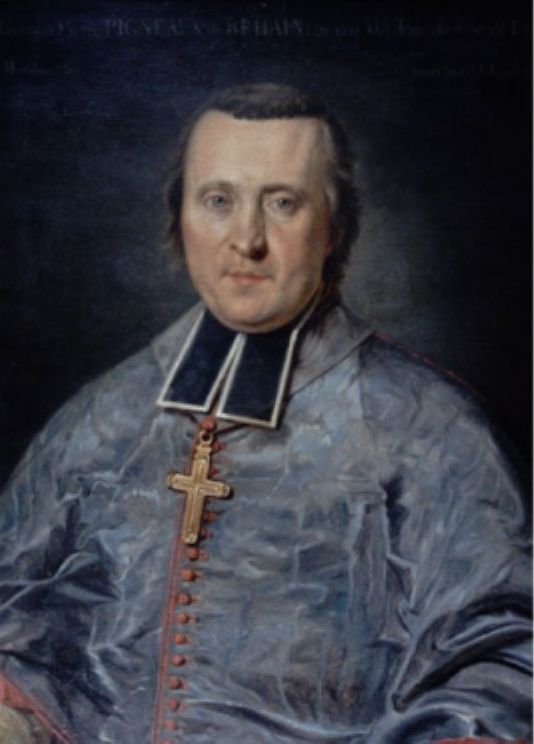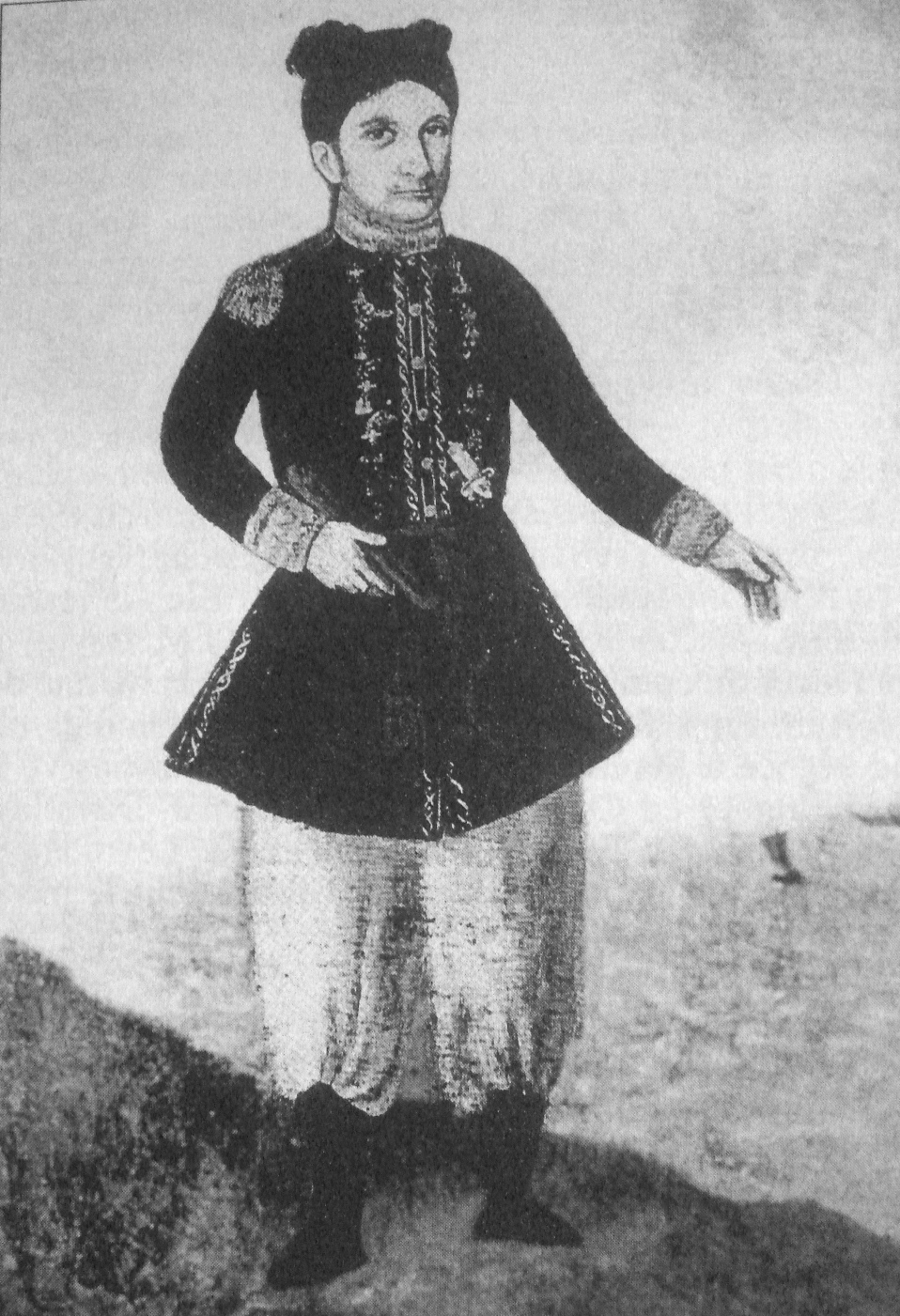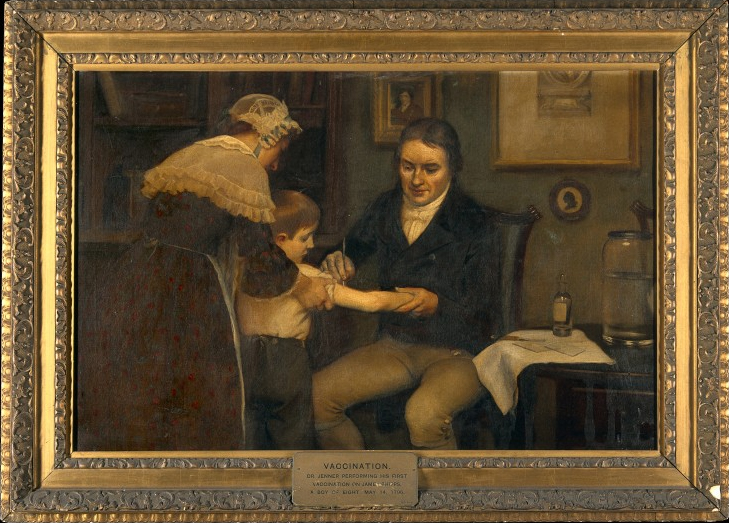|
Jean Marie Despiau
Jean Marie Despiau (?–1824), also spelled Jean-Marie Despiaux (J. M. Despiaux for short), was a French physician, later a mandarin of Nguyễn dynasty, Vietnam. Born in Bazas, Gironde. He arrived in Cochinchina from Macau in 1795. He became the personal physician of Nguyễn Ánh (later Emperor Gia Long). Later, he served as an imperial physician of Nguyễn dynasty from 1802 until he died in 1824. In 1820, he was dispatched to Macau for smallpox vaccine. See also *French assistance to Nguyễn Ánh French assistance to Nguyễn Phúc Ánh (commonly known by his era name as the Gia Long Emperor), the future founding emperor of the Nguyễn dynasty, covered a period from 1777 to 1820. From 1777, Mgr Pigneau de Behaine, of the Paris Foreign Mi ... * France-Vietnam relations References {{DEFAULTSORT:Despiau, Jean Marie 1824 deaths People from Gironde 18th-century French physicians Nguyen dynasty officials Mandarins of the Nguyễn lords 18th-century Vietname ... [...More Info...] [...Related Items...] OR: [Wikipedia] [Google] [Baidu] |
Nguyễn Dynasty
The Nguyễn dynasty (chữ Nôm: 茹阮, vi, Nhà Nguyễn; chữ Hán: 阮朝, vi, Nguyễn triều) was the last Vietnamese dynasty, which ruled the unified Vietnamese state largely independently from 1802 to 1883. During its existence, the empire expanded into modern-day southern Vietnam, Cambodia, and Laos through a continuation of the centuries-long Nam tiến and Siamese–Vietnamese wars. After 1883, the Nguyễn emperors ruled nominally as heads of state of the French protectorates of Annam and Tonkin until the final months of WWII; they later nominally ruled over the Empire of Vietnam until the August Revolution. The Nguyễn Phúc family established feudal rule over large amounts of territory as the Nguyễn lords by the 16th century before defeating the Tây Sơn dynasty and establishing their own imperial rule in the 19th century. The dynastic rule began with Gia Long ascending the throne in 1802, after ending the previous Tây Sơn dynasty. The Nguy� ... [...More Info...] [...Related Items...] OR: [Wikipedia] [Google] [Baidu] |
Gia Long
Gia Long ( (''North''), ('' South''); 8 February 1762 – 3 February 1820), born Nguyễn Phúc Ánh (阮福暎) or Nguyễn Ánh, was the founding emperor of the Nguyễn dynasty, the last dynasty of Vietnam. His dynasty would rule the unified territories that constitute modern-day Vietnam until 1945. A nephew of the last Nguyễn lord who ruled over south Vietnam, Nguyễn Ánh was forced into hiding in 1777 as a fifteen-year-old when his family was slain in the Tây Sơn revolt. After several changes of fortune in which his loyalists regained and again lost Saigon, he befriended the French Catholic Bishop Pierre Pigneau de Behaine. Pigneau championed his cause to the French government and managed to recruit volunteers when that fell through to help Nguyễn Ánh regain the throne. From 1789, Nguyễn Ánh was once again in the ascendancy and began his northward march to defeat the Tây Sơn, reaching the border with China by 1802, which had previously been under the co ... [...More Info...] [...Related Items...] OR: [Wikipedia] [Google] [Baidu] |
Mandarins Of The Nguyễn Lords
Mandarin or The Mandarin may refer to: Language * Mandarin Chinese, branch of Chinese originally spoken in northern parts of the country ** Standard Chinese or Modern Standard Mandarin, the official language of China ** Taiwanese Mandarin, Standard Chinese as spoken in Taiwan * Mandarin (late imperial lingua franca), the spoken standard of the Ming and Qing dynasties of China Biological species * Mandarin orange (''Citrus reticulata''), a sweet, orange-like citrus fruit * Mandarin duck (''Aix galericulata''), a perching duck species found in East Asia * Mandarin dogfish, two species of small shark in the genus ''Cirrhigaleus'' off East Asian coast * Mandarinfish (other), various fishes * Mandarin vole (''Lasiopodomys mandarinus''), a species of vole found in China and the Korean Peninsula * Spotted mandarin (other), various species Arts, entertainment, and media * '' The Miraculous Mandarin'', a one-act pantomime ballet composed by Béla Bartók * Mandarin ... [...More Info...] [...Related Items...] OR: [Wikipedia] [Google] [Baidu] |
Nguyen Dynasty Officials
Nguyễn () is the most common Vietnamese surname. Outside of Vietnam, the surname is commonly rendered without diacritics as Nguyen. Nguyên (元)is a different word and surname. By some estimates 39 percent of Vietnamese people bear this surname.Lê Trung Hoa, ''Họ và tên người Việt Nam'', NXB Khoa học - Xã hội, 2005 Origin and usage "Nguyễn" is the spelling of the Sino-Vietnamese pronunciation of the Han character 阮 (, ). The same Han character is often romanized as ''Ruǎn'' in Mandarin, ''Yuen'' in Cantonese, ''Gnieuh'' or ''Nyoe¹'' in Wu Chinese, or ''Nguang'' in Hokchew. . Hanja reading (Korean) is 완 (''Wan'') or 원 (''Won'') and in Hiragana, it is げん (''Gen''), old reading as け゚ん (Ngen). The first recorded mention of a person surnamed Nguyen is a 317 CE description of a journey to Giao Châu undertaken by Eastern Jin dynasty (, ) officer and his family. Many events in Vietnamese history have contributed to the name's prominence. I ... [...More Info...] [...Related Items...] OR: [Wikipedia] [Google] [Baidu] |
18th-century French Physicians
The 18th century lasted from January 1, 1701 ( MDCCI) to December 31, 1800 ( MDCCC). During the 18th century, elements of Enlightenment thinking culminated in the American, French, and Haitian Revolutions. During the century, slave trading and human trafficking expanded across the shores of the Atlantic, while declining in Russia, China, and Korea. Revolutions began to challenge the legitimacy of monarchical and aristocratic power structures, including the structures and beliefs that supported slavery. The Industrial Revolution began during mid-century, leading to radical changes in human society and the environment. Western historians have occasionally defined the 18th century otherwise for the purposes of their work. For example, the "short" 18th century may be defined as 1715–1789, denoting the period of time between the death of Louis XIV of France and the start of the French Revolution, with an emphasis on directly interconnected events. To historians who expand t ... [...More Info...] [...Related Items...] OR: [Wikipedia] [Google] [Baidu] |
People From Gironde
A person ( : people) is a being that has certain capacities or attributes such as reason, morality, consciousness or self-consciousness, and being a part of a culturally established form of social relations such as kinship, ownership of property, or legal responsibility. The defining features of personhood and, consequently, what makes a person count as a person, differ widely among cultures and contexts. In addition to the question of personhood, of what makes a being count as a person to begin with, there are further questions about personal identity and self: both about what makes any particular person that particular person instead of another, and about what makes a person at one time the same person as they were or will be at another time despite any intervening changes. The plural form "people" is often used to refer to an entire nation or ethnic group (as in "a people"), and this was the original meaning of the word; it subsequently acquired its use as a plural for ... [...More Info...] [...Related Items...] OR: [Wikipedia] [Google] [Baidu] |
1824 Deaths
Eighteen or 18 may refer to: * 18 (number), the natural number following 17 and preceding 19 * one of the years 18 BC, AD 18, 1918, 2018 Film, television and entertainment * ''18'' (film), a 1993 Taiwanese experimental film based on the short story ''God's Dice'' * ''Eighteen'' (film), a 2005 Canadian dramatic feature film * 18 (British Board of Film Classification), a film rating in the United Kingdom, also used in Ireland by the Irish Film Classification Office * 18 (''Dragon Ball''), a character in the ''Dragon Ball'' franchise * "Eighteen", a 2006 episode of the animated television series ''12 oz. Mouse'' Music Albums * ''18'' (Moby album), 2002 * ''18'' (Nana Kitade album), 2005 * '' 18...'', 2009 debut album by G.E.M. Songs * "18" (5 Seconds of Summer song), from their 2014 eponymous debut album * "18" (One Direction song), from their 2014 studio album ''Four'' * "18", by Anarbor from their 2013 studio album '' Burnout'' * "I'm Eighteen", by Alice Cooper commonly ... [...More Info...] [...Related Items...] OR: [Wikipedia] [Google] [Baidu] |
French Assistance To Nguyễn Ánh
French assistance to Nguyễn Phúc Ánh (commonly known by his era name as the Gia Long Emperor), the future founding emperor of the Nguyễn dynasty, covered a period from 1777 to 1820. From 1777, Mgr Pigneau de Behaine, of the Paris Foreign Missions Society, had taken to protecting the young Vietnamese prince who was fleeing from the offensive of the Tây Sơn. Pigneau de Behaine went to France to obtain military aid, and secured a France-Vietnam alliance that was signed through the 1787 Treaty of Versailles between the king of France, Louis XVI, and Prince Nguyễn Phúc Ánh. As the French regime was under considerable strain at the eve of the French Revolution, France was unable to follow through with the application of the treaty. However, Mgr Pigneau de Behaine persisted in his efforts and, with the support of French individuals and traders, mounted a force of French soldiers and officers that would contribute to the modernization of the armies of Nguyễn Ánh, making po ... [...More Info...] [...Related Items...] OR: [Wikipedia] [Google] [Baidu] |
Smallpox Vaccine
The smallpox vaccine is the first vaccine to be developed against a contagious disease. In 1796, British physician Edward Jenner demonstrated that an infection with the relatively mild cowpox virus conferred immunity against the deadly smallpox virus. Cowpox served as a natural vaccine until the modern smallpox vaccine emerged in the 20th century. From 1958 to 1977, the World Health Organization (WHO) conducted a global vaccination campaign that eradicated smallpox, making it the only human disease to be eradicated. Although routine smallpox vaccination is no longer performed on the general public, the vaccine is still being produced to guard against bioterrorism, biological warfare, and monkeypox.Anderson MG, Frenkel LD, Homann S, and Guffey J. (2003), "A case of severe monkeypox virus disease in an American child: emerging infections and changing professional values"; ''Pediatr Infect Dis J'';22(12): 1093–96; discussion 1096–98. The term ''vaccine'' derives from the Latin ... [...More Info...] [...Related Items...] OR: [Wikipedia] [Google] [Baidu] |
Minh Mạng
Minh Mạng () or Minh Mệnh (, vi-hantu, 明 命, lit. "the bright favour of Heaven"; 25 May 1791 – 20 January 1841; born Nguyễn Phúc Đảm, also known as Nguyễn Phúc Kiểu) was the second emperor of the Nguyễn dynasty of Vietnam, reigning from 14 February 1820 until his death, on 20 January 1841. He was the fourth son of Emperor Gia Long, whose eldest son, Nguyễn Phúc Cảnh, had died in 1801. He was well known for his opposition to French involvement in Vietnam and his rigid Confucian orthodoxy. Early years Born Nguyễn Phúc Đảm at Gia Định in the middle of the Second Tây Sơn – Nguyễn War, Minh Mạng was the fourth son of lord Nguyễn Phúc Ánh – future Emperor Gia Long. His mother was Gia Long's second wife Trần Thị Đang (historically known as Empress Thuận Thiên). At the age of three, under the effect of a written agreement made by Gia Long with his first wife Tống Thị Lan (Empress Thừa Thiên), he was taken in a ... [...More Info...] [...Related Items...] OR: [Wikipedia] [Google] [Baidu] |
Nguyễn Ánh
Gia Long ( (''North''), ('' South''); 8 February 1762 – 3 February 1820), born Nguyễn Phúc Ánh (阮福暎) or Nguyễn Ánh, was the founding emperor of the Nguyễn dynasty, the last dynasty of Vietnam. His dynasty would rule the unified territories that constitute modern-day Vietnam until 1945. A nephew of the last Nguyễn lord who ruled over south Vietnam, Nguyễn Ánh was forced into hiding in 1777 as a fifteen-year-old when his family was slain in the Tây Sơn revolt. After several changes of fortune in which his loyalists regained and again lost Saigon, he befriended the French Catholic Bishop Pierre Pigneau de Behaine. Pigneau championed his cause to the French government and managed to recruit volunteers when that fell through to help Nguyễn Ánh regain the throne. From 1789, Nguyễn Ánh was once again in the ascendancy and began his northward march to defeat the Tây Sơn, reaching the border with China by 1802, which had previously been under the con ... [...More Info...] [...Related Items...] OR: [Wikipedia] [Google] [Baidu] |


_1938.jpg)


